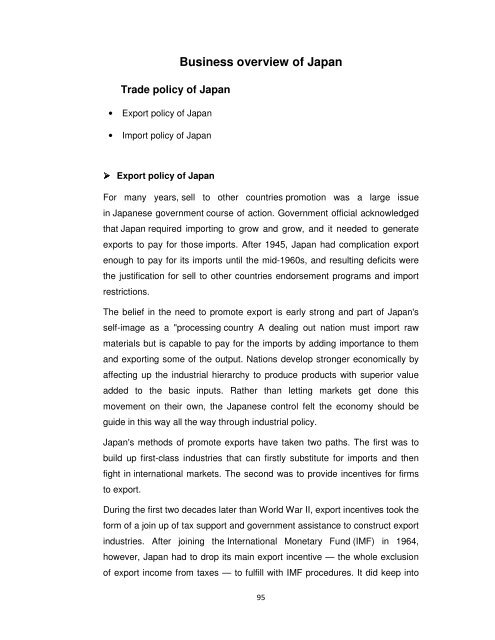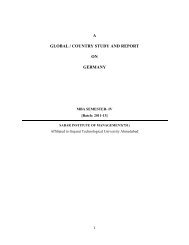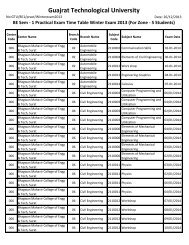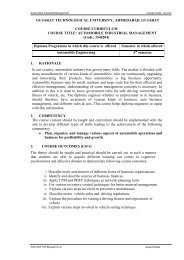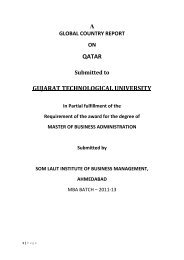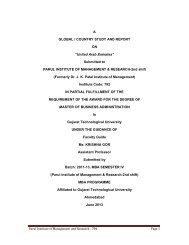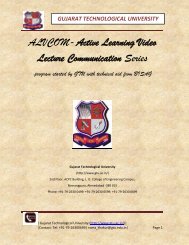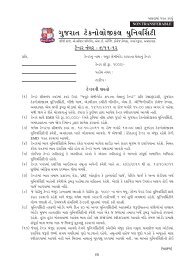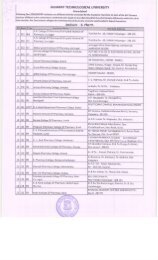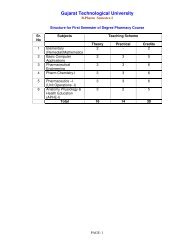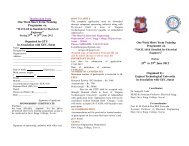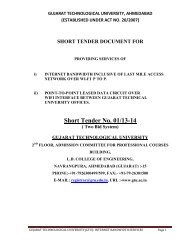708-Chaudhari Technical Institute, Gandhinagar - Gujarat ...
708-Chaudhari Technical Institute, Gandhinagar - Gujarat ...
708-Chaudhari Technical Institute, Gandhinagar - Gujarat ...
Create successful ePaper yourself
Turn your PDF publications into a flip-book with our unique Google optimized e-Paper software.
Business overview of Japan<br />
Trade policy of Japan<br />
• Export policy of Japan<br />
• Import policy of Japan<br />
Export policy of Japan<br />
For many years, sell to other countries promotion was a large issue<br />
in Japanese government course of action. Government official acknowledged<br />
that Japan required importing to grow and grow, and it needed to generate<br />
exports to pay for those imports. After 1945, Japan had complication export<br />
enough to pay for its imports until the mid-1960s, and resulting deficits were<br />
the justification for sell to other countries endorsement programs and import<br />
restrictions.<br />
The belief in the need to promote export is early strong and part of Japan's<br />
self-image as a "processing country A dealing out nation must import raw<br />
materials but is capable to pay for the imports by adding importance to them<br />
and exporting some of the output. Nations develop stronger economically by<br />
affecting up the industrial hierarchy to produce products with superior value<br />
added to the basic inputs. Rather than letting markets get done this<br />
movement on their own, the Japanese control felt the economy should be<br />
guide in this way all the way through industrial policy.<br />
Japan's methods of promote exports have taken two paths. The first was to<br />
build up first-class industries that can firstly substitute for imports and then<br />
fight in international markets. The second was to provide incentives for firms<br />
to export.<br />
During the first two decades later than World War II, export incentives took the<br />
form of a join up of tax support and government assistance to construct export<br />
industries. After joining the International Monetary Fund (IMF) in 1964,<br />
however, Japan had to drop its main export incentive — the whole exclusion<br />
of export income from taxes — to fulfill with IMF procedures. It did keep into<br />
95


